Ree Morton / Selected Works 1968 – 1972
“It’s official! A major museum exhibition, part of another, and a variegated flock of gallery shows have certified what many have suspected, that there is a brand-new Movement in our midst.” Peter Schjeldahl, prominent art critic in those days (and still today), let himself get carried away in 1969 with this enthusiasm-laden statement (Art International, Sept. 1969).
It was articulated in connection with the exhibition “Anti Illusion: Procedures/Materials” at the Whitney Museum in New York. And he continued “....it has been visible only in glimpses – partial manifestations known, variously‚ as ‘Minimal’ (in part), ‘Process’, ‘Conceptual’, ‘Destructive’, ‘Casual’, ‘Funk’, ‘Attitude’, and ‘Earthworks.’” Marked by vehement debates over similarities and differences, with everything open and virtually nothing excluded or pre-established, this atmosphere moved and intoxicated the participants in the New York art world. And it exuded an influence, extending quite far beyond the New York scene. Certainly also in large part because many artists and art historians – to make a living with a “teaching job” – became its ambassadors at museums, universities and art schools in distant parts of the country. Such as Robert Rohm, a sculptor, and Marcia Tucker, art historian and curator.
Ree Morton encountered Rohm and Tucker in 1966 at the Rhode Island School of Design where she attended art courses. Both instructors – who became her lifelong friends – provided her with access to a new way of life that was occupied equally by mind and psyche, emotion and action, and would completely shift the course of her life. A housewife and mother of two daughters and a son, she had been married to the Navy officer Ted Morton since 1956. In 1960, she learned about drawing courses offered at the Jacksonville Museum through a commercial on the radio, prior to which art and the practice of art had been a non-existent option in the young woman’s life. Training to become a nurse demarcated her intellectual horizon. Art and literature offered a new identity and it was a rare opportunity, allowing this unformed personality to take shape in the disparately forming art scene. “I figured out that life matters, too, and that being an artist is better than being a nurse. Not bad for a girl.”
She sought further possibilities for her artistic training, such as in 1970 at the Tyler School of Art, Philadelphia, Pennsylvania, and moved to New York in 1972. Her marriage ended and in the remaining five years of her life, she tried to harmonize and reconcile the close relationship with her children with her fulminant relationship to art. Remarkable and impressive was the fact that the novice was never merely one of many amidst the New York art scene. Her presence, vitality, enthusiasm and soon quite distinctive artistic profile helped forge friendships and led to exhibitions and contributions to such in museums. Quite striking and unusual was the way she quickly accumulated knowledge of demanding literature from Raymond Roussel to T.S. Eliot and made her understanding of the texts fruitful for her artistic work. Carefree and spontaneous, personal and direct, she used words and sentences, situations and topographies and transformed these into installations and drawings, into paintings and objects. She applied a nearly limited imagination in describing and designating the locations and loci for her world. The utilized materials and found objects, techniques and pictorial means provided space for broad sweeping associations.
On April 30, 1977, Ree Morton lost her life in a car accident. Our exhibition constitutes the third presentation of her work in our gallery, this time with early works from 1968-1972.
We thank Alexander & Bonin, NY, and the Estate of Ree Morton for their help and cooperation.
Installation views

Installation view room 4
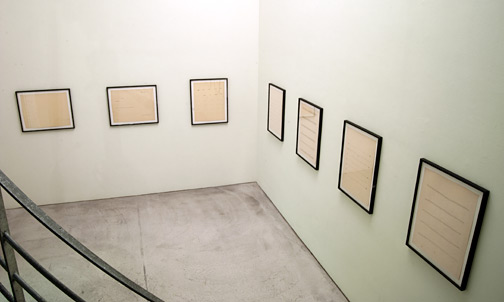
Installation view room 1
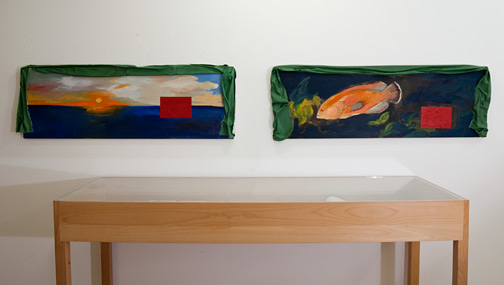
Installation view office room
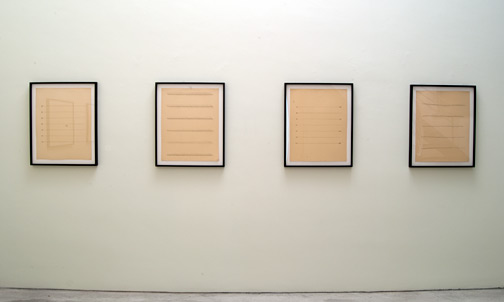
Installation view room 1
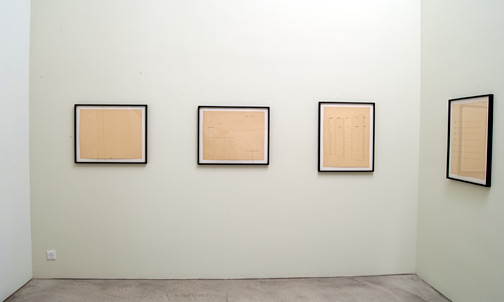
Installation view room1
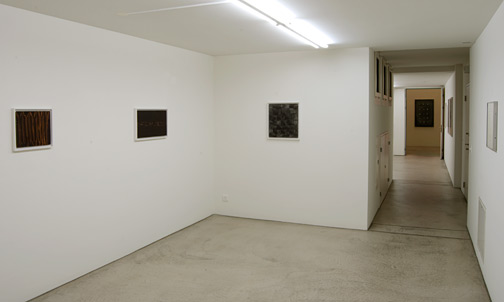
Installation view room 2
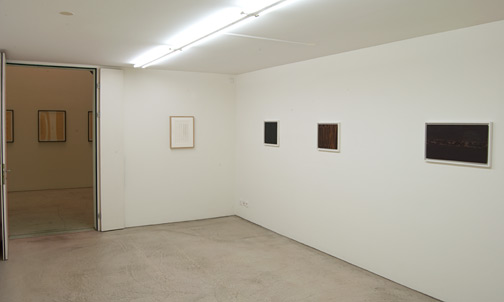
Installation view room 2
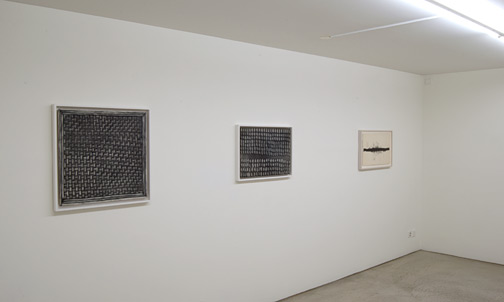
Installation view room 3
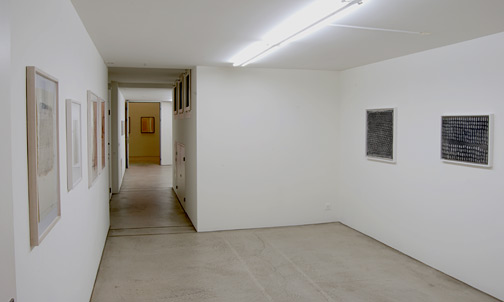
Installation view room 3
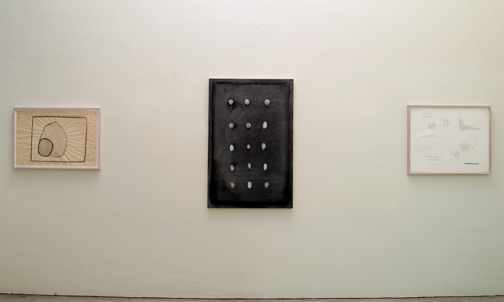
Installation view room 4
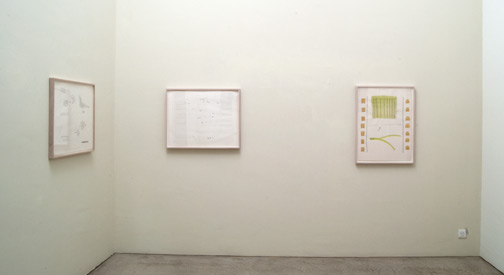
Installation view room 4
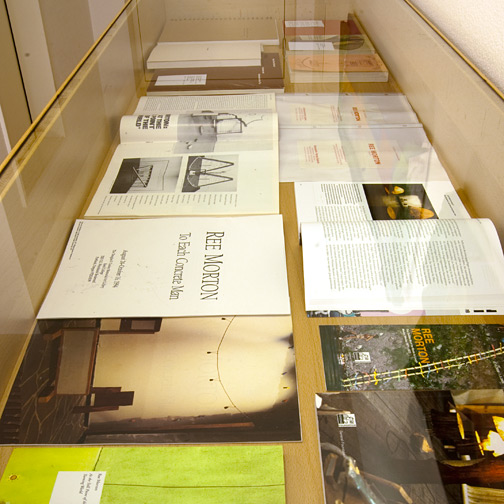
Installation view office room
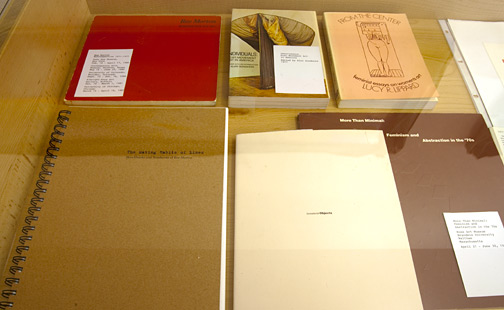
Installation view office room
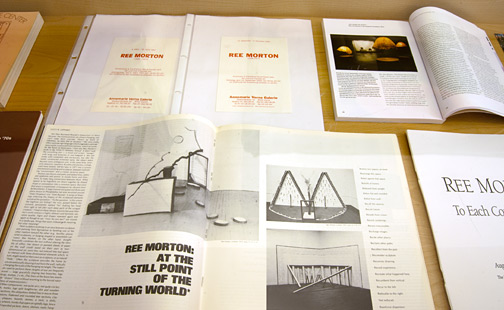
Installation view office room
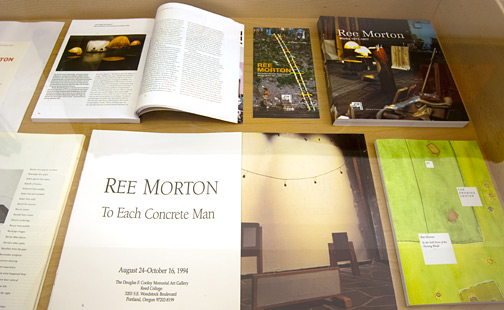
Installation view office room
Works

Ree Morton
Regional Piece
1975-76
two parts, each: 42 x 127 cm
Oil and celastic on wood panel
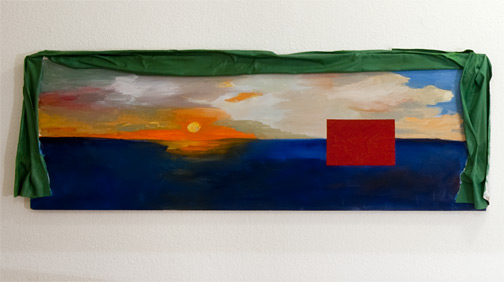
Ree Morton
Regional Piece
1975-76
two parts, each: 42 x 127 cm
Oil and celastic on wood panel
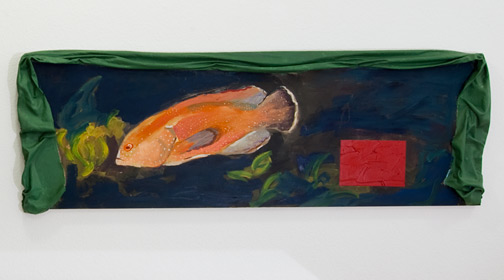
Ree Morton
Regional Piece
1975-76
two parts, each: 42 x 127 cm
Oil and celastic on wood panel
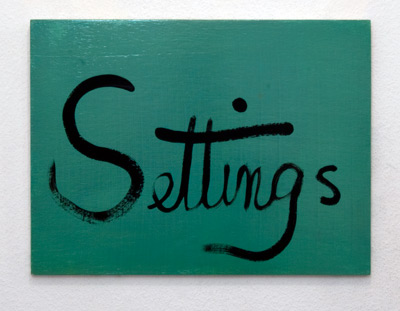
Ree Morton
Settings (Signs of Love)
1976
33 x 43 cm
Oil on plywood
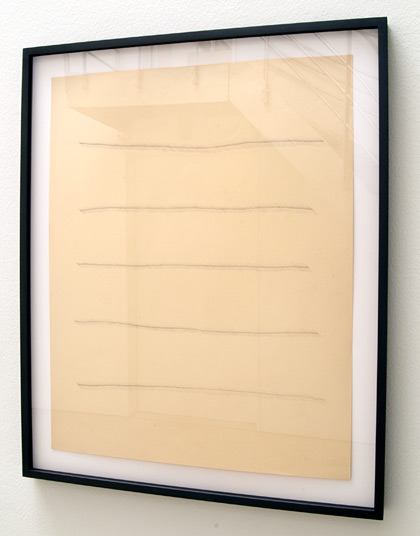
Ree Morton
Untitled (Line Drawing)
ca. 1968 -1970
61 x 48.3 cm
Pencil on paper
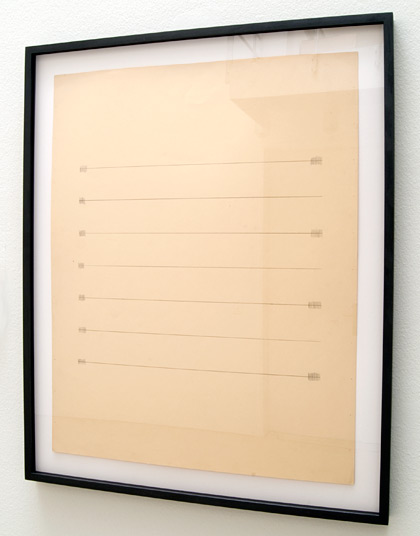
Ree Morton
Untitled (Line Drawing)
ca. 1968 -1970
61 x 48.3 cm
Pencil on paper
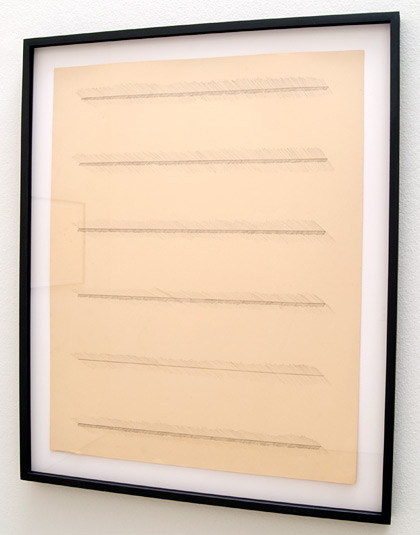
Ree Morton
Untitled (Line Drawing)
ca. 1968 -1970
61 x 48.3 cm
Pencil on paper
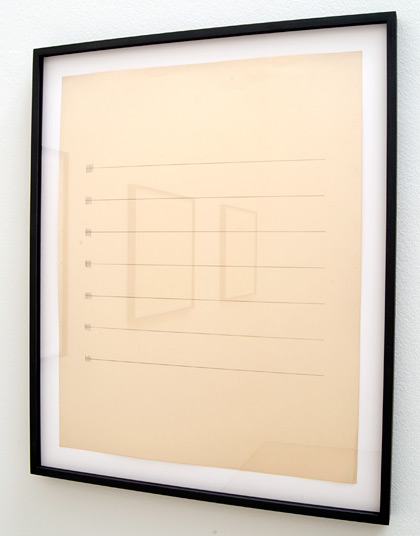
Ree Morton
Untitled (Line Drawing)
ca. 1968 -1970
61 x 48.3 cm
Pencil on paper
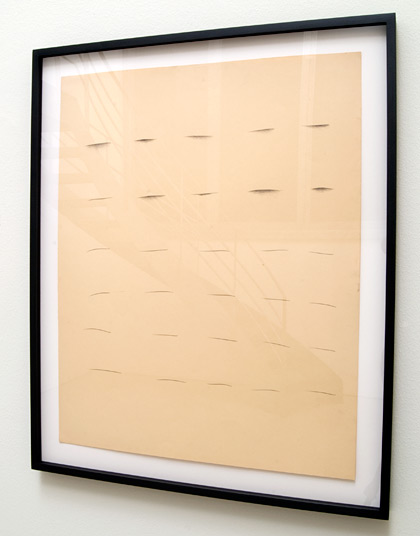
Ree Morton
Untitled (Line Drawing)
ca. 1968 -1970
61 x 48.3 cm
Pencil on paper
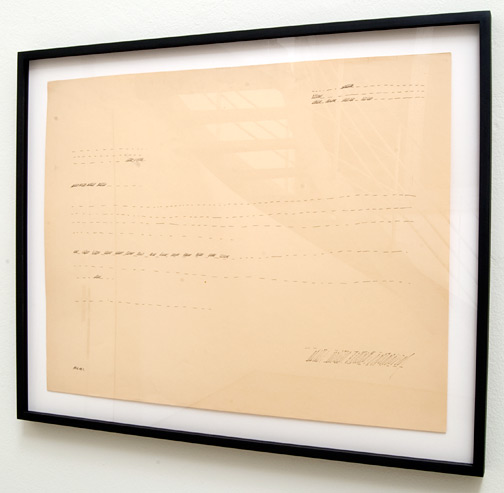
Ree Morton
Untitled (Line Drawing)
ca. 1968 -1970
48.3 x 61 cm
Pencil on paper
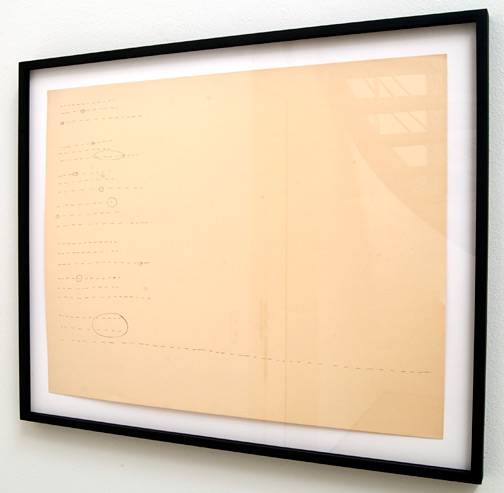
Ree Morton
Untitled (Line Drawing)
ca. 1968 -1970
48.3 x 61 cm
Pencil on paper
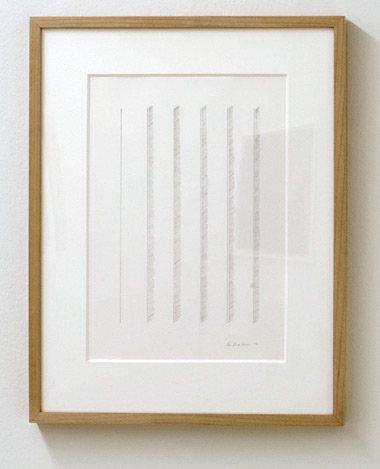
Ree Morton
Untitled
1970
48.5 x 37.7 cm
Pencil on paper
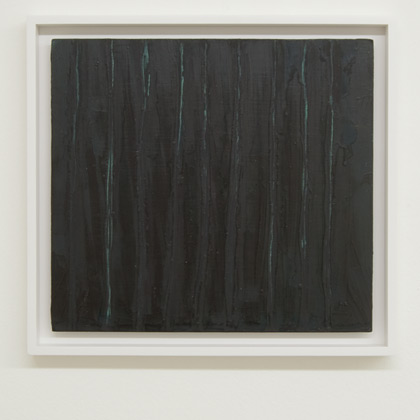
Ree Morton
Untitled
1968 - 1970
30.5 x 33.7 cm
Oil on masonite
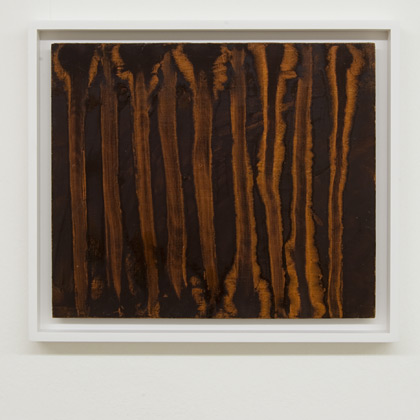
Ree Morton
Untitled
1968 - 1970
28.3 x 33.3 cm
Oil on masonite
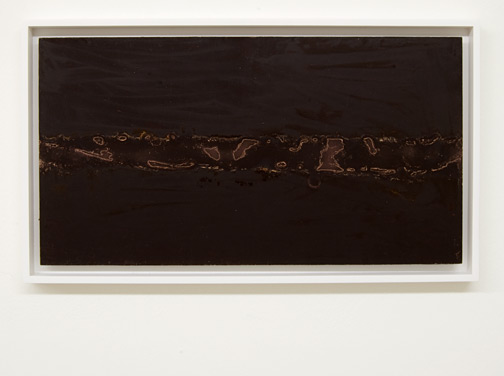
Ree Morton
Untitled
1968 - 1970
29.8 x 55.2 cm
Oil on masonite
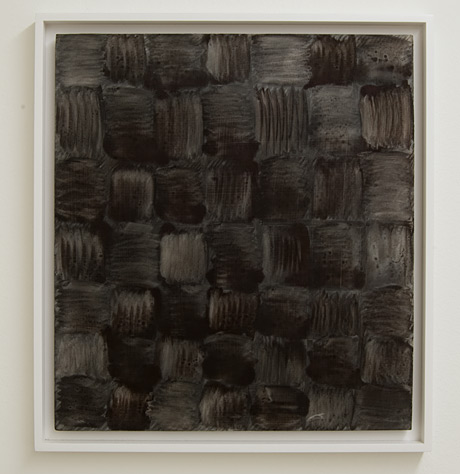
Ree Morton
Untitled
1968 - 1970
45.7 x 41.3 cm
Oil on masonite
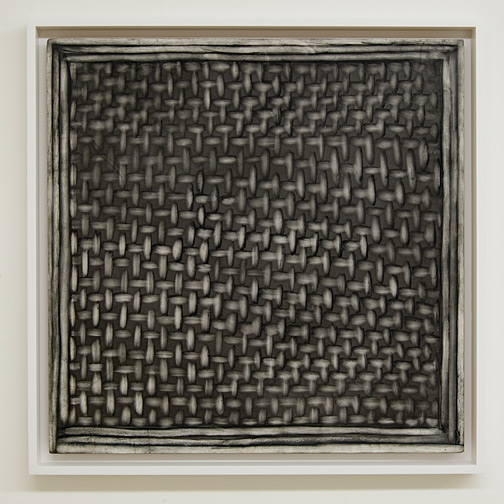
Ree Morton
Untitled
ca. 1970
61 x 61 cm
Oil on masonite
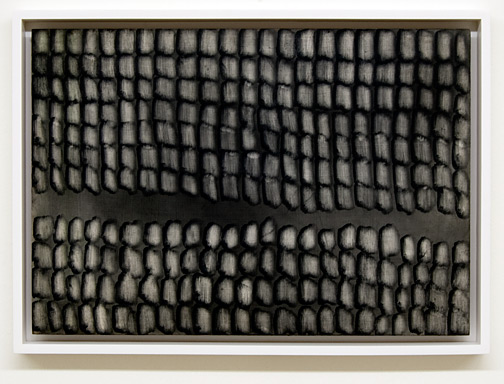
Ree Morton
Untitled
1968 - 1970
41.9 x 59.7 cm
Oil on masonite
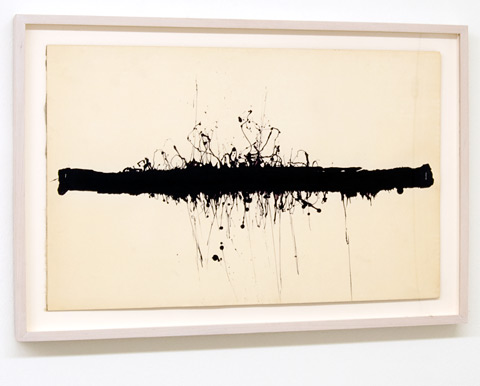
Ree Morton
Untitled (Black Horizontal)
1968 - 1970
35.6 x 55.9 cm
Ink and collage on paper on board
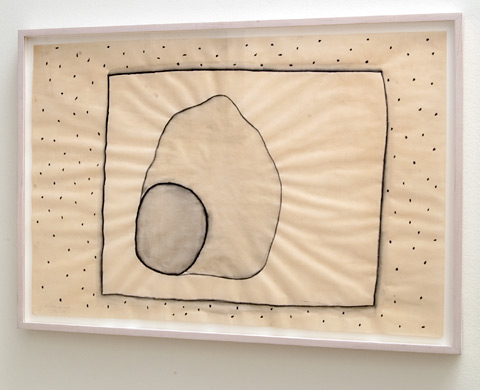
Ree Morton
Untitled
ca. 1972
50.2 x 76.2 cm
Ink on vellum
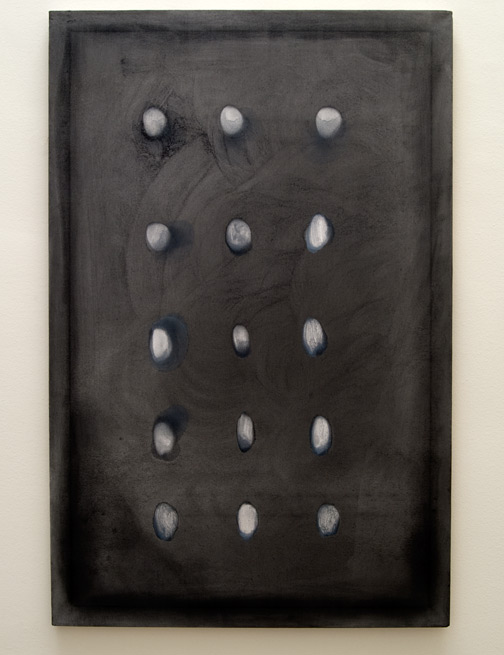
Ree Morton
Untitled
ca. 1970
117 x 76.2 cm
Oil on canvas
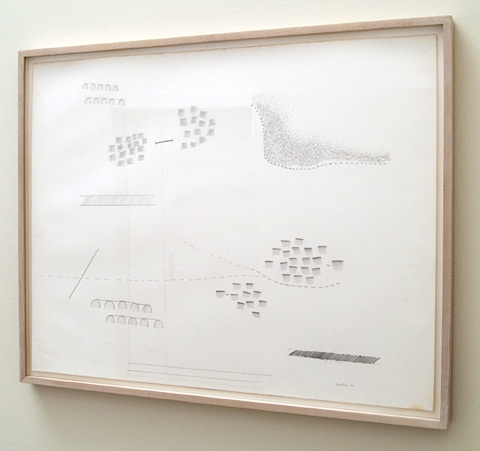
Ree Morton
Untitled
1972
58.4 x 73.7 cm
Pencil on paper
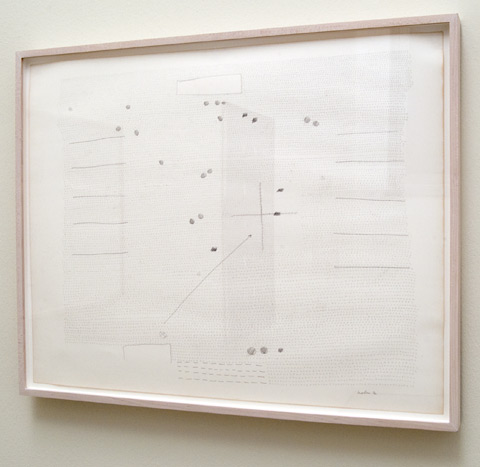
Ree Morton
Untitled
1972
58.4 x 73.7 cm
Pencil on paper
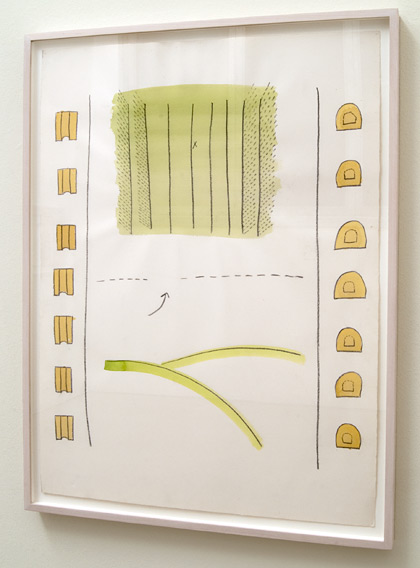
Ree Morton
Untitled (Game Drawing)
1972 / 1973
76.8 x 56.5 cm
Watercolor and graphite on paper
New
Exhibition
Dan Flavin (1933–1996) and Will Insley (1929–2011)
March 6 to April 26, 2024
New publications
James Bishop
James Bishop
Publisher: ER Publishing, Edited by Molly Warnock
Joseph Egan
Joseph Egan and Anton Himstedt: Common Ground
Publisher: Josef Albers Museum Quadrat Bottrop, Ulrike Growe
Exhibitions / Insight
INSIGHT #3 spotlights the graphic work of Fred Sandback through three examples from 1974 and 1982.
Joseph Egan, Ptolemäus: Die Welt im Griff? Antike Kartographie und zeitgenössische Kunst, Kunsthaus Grenchen
3. März bis 26. Mai 2024
Dan Flavin, Widmungen aus Licht, Kunstmuseum Basel
2. März bis 18. August 2024
Rita McBride, Momentum,
Dia Beacon, Beacon, NY,
July 1, 2023 to January 2025
Fred Sandback, Kurt Büsser ermöglicht... Erich Buchholz und Fred Sandback, Museum Wiesbaden
19. Januar bis 14. April 2024
Sol LeWitt (1928–2007)
A Wall Drawing Retrospective
Yale University Art Gallery and Williams College Museum of Art
November 16, 2008 – 2033

